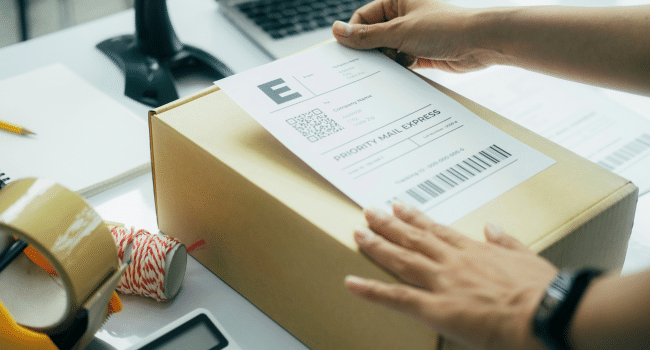Table of Contents
For eCommerce sellers, small business owners, and warehouse managers, thermal labels are essential for daily operations. Dymo 1744907 labels—popular for their compatibility with Dymo LabelWriter printers—are frequently used for shipping, mailing, and inventory tagging. But many buyers don’t realize they might be overspending.
If you suspect your current label costs are higher than they should be, you’re not alone. Let’s explore the 9 telltale signs you might be overpaying for Dymo 1744907 labels and what you can do about it.
1. You’re Only Buying from Big Box Retailers
While office supply chains and marketplaces like Staples or Office Depot offer convenience, they often charge premium prices. These retailers mark up label costs significantly compared to wholesale or direct-to-consumer brands. If you’re relying solely on big-box stores, chances are you’re not getting the best deal.
2. You Haven’t Compared Prices in Over 6 Months
Label pricing fluctuates due to raw material costs and market trends. If you haven’t checked competing prices in the last six months, your supplier may no longer be competitive. Regularly reviewing the market can uncover better deals and new suppliers.
3. You’re Still Using OEM Labels
Original Equipment Manufacturer (OEM) labels like genuine Dymo products are reliable, but often priced much higher than third-party alternatives. Many compatible labels match or exceed OEM performance at a fraction of the cost. Sticking with OEM by habit may be costing you extra.
4. You’re Not Buying in Bulk
Dymo 1744907 labels are consumables—the more you use, the more you save when buying in bulk. If you’re purchasing one roll or one box at a time, you’re likely paying the highest per-label cost. Bulk pricing can reduce costs by up to 50%.
5. You’re Paying for Features You Don’t Need
Some label suppliers upsell “premium” features such as ultra-adhesive backings or extra-thick liners. These are only necessary in specific use cases. If you’re using labels for standard office tasks, paying for these extras is unnecessary.
6. Your Labels Jam or Misalign Often
Frequent misalignment or printer jams might not seem like a cost issue, but they waste both time and materials. Inferior labels result in poor performance, leading to reprints and downtime. A quality third-party brand can provide smoother printing at a lower price point.
7. Shipping Costs Are Inflated or Hidden
Sometimes the label price looks fair until you reach the checkout page. If your supplier is charging high or unlisted shipping fees, your total cost per roll can quickly exceed reasonable limits. Transparent shipping policies can significantly cut down your total spend.
8. You’re Not Subscribed to Any Discount Program
Many label brands offer loyalty discounts, subscription savings, or business accounts with lower rates. If you’re not taking advantage of these options, you could be missing out on 10-20% in savings every month.
9. You Haven’t Heard of Betckey Yet
Betckey is a trusted supplier of compatible thermal labels, including Dymo 1744907 equivalents. Their products are known for reliability, compatibility, and affordability. Many businesses make the switch to Betckey after realizing how much they can save without sacrificing quality.
Why Choose Betckey for Dymo 1744907 Labels?
- Cost-Effective: Offers wholesale prices without sacrificing quality
- Compatibility: compatible with Dymo LabelWriter printers (not compatible with Dymo 550, 550 turbo, and 5XL that require RFID chips)
- Customer Support: Helpful and knowledgeable service
- Satisfaction Guarantee: Risk-free returns if you’re not satisfied
Betckey is a go-to brand for savvy business owners who demand reliable labels at competitive prices. Make the switch and start saving today.
FAQs
1. Are Betckey labels as reliable as OEM Dymo labels?
Yes. Betckey labels are engineered to match OEM performance and are compatible with Dymo LabelWriter printers.
2. Will using third-party labels void my printer warranty?
No. By law, using compatible products like Betckey labels does not void the warranty of your printer.
3. How can I calculate my actual label cost?
Add the base product price plus any shipping fees, then divide by the number of labels per roll. This gives you a true per-label cost for comparison.
